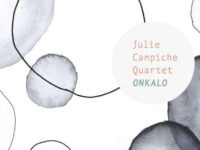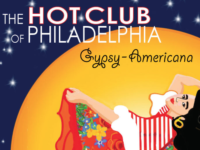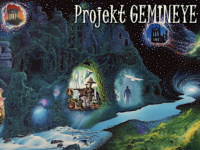Murmullo is a quintet led by Clemens Kuratle, one of Switzerland’s most in-demand young drummers and a nominee for the ZKB Jazzpreis in 2019. He is a key member of harpist Julie Campiche’s quartet and part of the folk band Moes Anthill, as well as the international quintet Ydivide.
Kuratle’s inspiration comes a wide field, but includes the drummers of Burundi, Indonesian gamelan, gnawa music from Morroco and female choirs of Bulgaria. Clemens Kuratle has played several festivals including the Montreaux Jazz Festival, 12 Points Dublin festival as well as many venues across Europe.
His Murmullo quintet features Jonathan Maag (Lukas Niggli, Django Bates, Tom Harrell, Peter Herbolzheimer, Alvin Mills and more) on tenor saxophone; Florian Weiss (La Mome, Linus Amsted, Lucerne Jazz Orchestra) on trombone; Franz Hellmüller (Bloom Effect, Radar Suzuki) on guitar and Rafael Jerjen (Andy Sheppard, Matt Baker, Tobias Cole and more) on bass. They released their self-titled debut album, featuring six of Clemens’ original compositions, on QFTF in 2016.
“As a quintet, Murmullo’s been playing gigs and working on my music for five years now, and the time was right to release a second album,” Clemens Kuratle says. “I value continuity highly in all of my projects, be it as a sideman or a leader – so a release is always a celebration of what the group has accomplished so far. I’m obsessed with history, philosophy, politics and any kind of art form. Very often, the inspiration for new tunes comes through dealing with philosophy, current tendencies in politics, my personal research in history, or a piece of art that somehow touches me.”
Lies opens with the title track, which was “inspired by a quote of Pablo Picasso where he says, ‘Art is a lie,’” Kuratle adds. “Often, I hear motives at first and then develop the piece and try to stay true to the first intention. I decided to call it ‘Lies’ in the end, and enjoyed featuring some notorious liars of our time. May they be remembered as such, be it Dick Cheney; the east Germany official who said ‘‘nobody has any intention of building a wall’ a few days before they started building it, an infamous U.S. president or Nigel Farage.”
“Lies” features the rhythmic backdrop of the drums over which come vocals, and an atmospheric build up of instruments with the voice, until the trombone and sax introduce a melodic phrase and the percussive background increases in texture and depth. The guitar-led section has a sense of ’80s rock about it, while the percussive variations increase further. The horns re-take the lead before a great section of trombone and sax in harmonics over drums, with Franz Hellmüller’s guitar interposing its own voice.
“Contemplation” starts with drums and guitar, echoey and atmospheric over drums and bass before Murmullo’s horns once again combine to introduce a themed, melodic overlay. “Hannah Arendt made me understand that a democracy, the way the Greeks invented it, only works if people have the time to contemplate!” Clemens Kuratle says. “This is crucial, and to me explains why populist tendencies are on the move. Our capitalist system doesn’t allow the majority of the people to contemplate and really reflect on what is happening now, making them victims of populists promoting hate and blaming minorities. This song tries to reflect a state of contemplation.”
In the number, the Latin-infused rhythms combine with Maag’s sax line to create a thematic number, with the arrangement working to create almost a big-band sound. That backing eventually provides a solid backdrop to a well-worked tenor sax solo. The final section is the whole Murmullo ensemble, thematic and full-on.
“Deconstruct” is a great track, opening with a salvo from sax and trombone, before the bass takes it down low and slow with Florian Weiss’ trombone introducing a melody across the top. Meanwhile, Rafael Jerjen’s bass wanders, taking huge intervals in progression underneath. The bass solo and guitar duo section is beautiful, as each walks its own path and the percussion maintains the faltering, altering rhythms behind. This is a track of differences, with the trombone emerging for its own solo while the rhythms and tempos vary – often with each instrument working its own line as the trombone maintains a steady gait. Gloriously juxtaposed at times, yet ending in a full throttle, all together, percussion-led finish.
“Prelude” is short, as you would expect, and is a series of phrases from Franz Hellmüller’s guitar – gentle, thoughtful and sweet. The obvious question: A prelude to what? The track leads expertly into “Aunt Rose,” a track Clemens Kuratle says was inspired “by a beautiful poem with the same title by Allen Ginsberg that I often associated with my late grand-aunt, in the state of progressed dementia. This is symbolized mainly by the guitar riff. I dedicate the song to her. Her name was Rose-Mary.”
The track leads from the prelude and gradually swells with a gentle theme of the guitar being joined by bass, then drums – and then we are getting sassy and noisy. The rhythm changes and tempo is faster with the guitar switching to a steady 4/4 and the drums interspersing heavy beats. Florian Weiss’ trombone joins, and “Aunt Rose” changes from a gentle, somewhat shy lady into a sassy woman. The addition of Jonathan Maag’s sax makes her more characterful, deeper and layered. This powerful sax speaks of hidden strength to Aunt Rose and Franz Hellmüller’s equally strong guitar adds depths and force. The latter half of this track is seriously good – powerful. The sax screeches and hits notes with force, with Murmullo following, supporting and taking this a whole lot further. Brilliant.
“Lull-a-Bye” features Rafael Jerjen’s swooning, swerving bass in glorious, belly-rumbling solo over perky, percussive rhythms which chop and change. The rest of Murmullo then drops into the mix, creating a sound which is like no lullaby I ever heard. Eastern rhythms vie cleverly alongside smooth, swinging sax and the bass is still swooping, lurching, glissando and warping. A beautifully worked track, with the second part truly showing what this ensemble is capable of. Even the vocals are forgivable … (“When words become meaningless, as our friendship gets old, and while we give ourselves up while the last lasting butterfly dances, then we all stand a chance to understand what is real”) … and not that annoying.
Murmullo features five young and very talented musicians whose surety and confidence in what they do is growing. Due on April 9, 2020, Lies was made in analog, and while the technique is well established, the young musicians this project brings together are still forming and developing.
The resulting album showcases Clemens Kuratle as a sensitive composer, an arranger with a sense of dynamics, as well someone who is being able to use the talents of the young musicians. Blending well together and expertly led, they make a formidable ensemble who I, for one, would like to hear more from.
- Milena Casado – ‘Reflection of Another Self’ (2025) - May 4, 2025
- Luis Ianes and Noel Akchote – ‘Seuil’ (2025) - April 12, 2025
- David Dower Trio – ‘Sonder’ (2025) - March 23, 2025




